Leave Your Comfort Zone, Be a Better You, Transform Your Business, Influence Your World
This book explores human behavior to empower readers to be bolder. Using years of experience as an aid-worker and HR manager, Michelle provides a blueprint for escaping your comfort zone.
Ended

Michelle is a chief conversationalist, an HR guru, an entrepreneur, a public speaker, and a mum.
250 copies • Partial manuscript.
Anaphora Literary Press was started in 2009 and publishes fiction, short stories, creative and non-fiction books. Anaphora has exhibited its titles at SIBA, ALA, SAMLA, and many other international conventions. Services include book trailers, press releases, merchandise design, book review (free in pdf/epub) submissions, proofreading, formatting, design, LCCN/ISBN assignment, international distribution, art creation, ebook (Kindle, EBSCO, ProQuest)/ softcover/ hardcover editions, and dozens of other components included in the basic package.

500 copies • Complete manuscript.
Blooming Twig is an award-winning boutique publishing house, media company, and thought leadership marketing agency. Based in New York City and Tulsa, we have represented and re-branded hundreds of thought leaders, published more than 400 titles in all genres, and built up a like-minded following for authors, speakers, trainers, and organizations with our bleeding-edge marketing strategies. Blooming Twig is about giving the people with something to say (“thought leaders”) a platform, walking its clients up to their own influencer pulpit, and making sure there is a like-minded crowd assembled to hear the meaningful message.
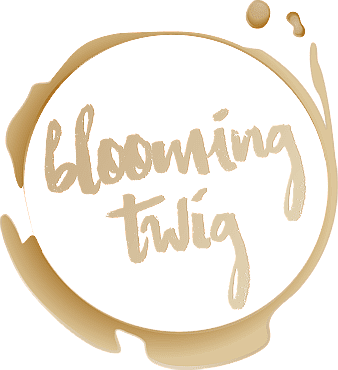
250 copies • Completed manuscript • Looking for poetry and anthologies.
Cyberwit seeks to publish the best in Poetry from novices to established poets. Our published Anthologies and Journal Taj Mahal Review have poems that are sensuous, picturesque, and impassioned. The poems reveal a fine combination of human elements of romance and the mystic & everyday realities. Cyberwit has published a myriad of new poets and an increasingly large number of collections of verse. The significance of Poetry has not declined, and the 21st century seems to be the Golden Era of English Poetry. The name of Cyberwit is known to readers in several countries.
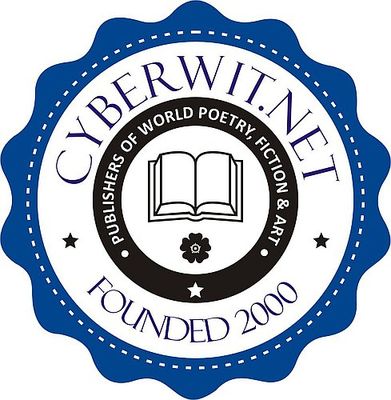
500 copies • Completed manuscript.
Emerald Lake Books is a hybrid publishing company that provides a unique blend of business coaching with publishing to help its authors succeed, whether it’s their first book or their fiftieth! Emerald Lake Books specializes in working with positive people who have an engaging, exciting, or entertaining message to share with the world. Using a unique, goal-oriented approach to publishing, we combine our business and publishing knowledge to help our authors set and attain goals for their readers, their brands, and their books. And many of those books have gone on to win international awards and recognition.

250 copies • Completed manuscript.
Isabella Media Inc is a Rhode Island-based, family-owned, mainline publishing organization with a mission to discover unknown stories. We combine unknown or little known authors’ undiscovered potential with Isabella Media Inc’s unique approach to publishing to provide the highest quality books to readers about stories they may not find anywhere else. It’s our desire to find unique stories that drive us.
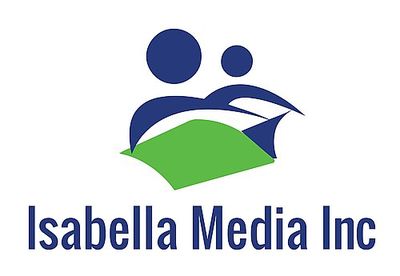
Looking for entrepreneurship, business, self-help, and personal growth books.
Morgan James Publishing has revolutionized book publishing—from the author’s standpoint, earning 29 NY Times and over 100 USA Today and Wall Street Journal best sellers. We teach authors strategies to leverage their books and grow their businesses—adding value while staying out of the way. Evidenced by more Major Media best sellers than most publishers our size. Regularly ranked by Publishers Weekly as the most recognized and one of the fastest-growing publishers in the nation, Morgan James is reported to be “the future of publishing.”

250 copies • Completed manuscript.
Motivational Press is a top publisher today in providing marketing and promotion support to our authors. Our authors get favorable rates for purchasing their own books and higher than standard royalties. Our team is at the forefront of technology and offers the most comprehensive publishing platform of any non-fiction publishing house including print, electronic, and audiobook distribution worldwide. We look forward to serving you.

250 copies • Partial manuscript.
Authors Unite helps you become a profitable author and make an impact. We take care of printing and distribution through major online retailers, developmental editing, and proofreading with unlimited revisions. We take care of the entire process for you from book cover design all the way to set up your backend so all your book royalties go straight to your bank account. We can also help with ghostwriting if you prefer not to have to figure out all the steps on how to write a book yourself.
With our book marketing services, you don’t need to worry about figuring out all the steps on how to market a book or how to become a bestselling author. We’ve helped hundreds of authors become bestselling authors on Amazon, USA Today, and The Wall Street Journal. We take care of the entire book launch process for you to help you sell thousands of copies of your book and become a bestselling author.
View case studies here: https://authorsunite.com

100 copies • Partial manuscript.
Bookmobile provides book printing, graphic design, and other resources to support book publishers in an ever-changing environment. Superior quality, excellent customer service, flexibility, and timely turnarounds have attracted nearly 1,000 satisfied clients to Bookmobile, including trade houses, university presses, independent publishers, museums, galleries, artists, and more. In addition, we manage eBook conversions and produce galleys, and regularly provide short-run reprints of 750 copies or fewer for major publishers such as Graywolf Press.

100 copies • Completed manuscript.
Happy Self Publishing has helped 500+ authors to get their books self-published, hit the #1 position in the Amazon bestseller charts, and also establish their author website & brand to grow their business. And the best thing is, we do all this without taking away your rights and royalties. Let's schedule a call to discuss the next steps in your book project: www.meetme.so/jyotsnaramachandran
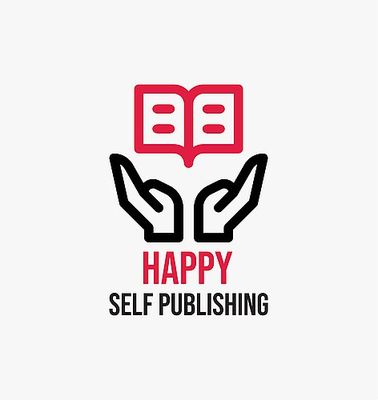
100 copies • Completed manuscript.
Jetlaunch book design and project management services give you back the hours you need to grow your publishing business. We've done work for John Lee Dumas, Ed Mylett, Rachel Pedersen, Dan Sullivan, Aaron Walker, Amy Landino (Schmittauer), Kary Oberbrunner, Jim Edwards, and many publishing companies. You retain all rights and royalties.

Get your ebooks into the biggest stores and keep the 100% of your royalties. Amazon, Apple iBooks, Google Play, Kobo, Nook by Barnes & Noble and more.
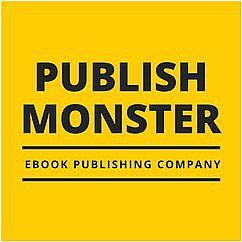
Introduction
In this book you’ll learn about yourself, others, and organisations. You’ll learn the steps to move from what I call a Sufferer to a Thriver. And it won’t happen neatly, or at once, it never does.
I was a Thriver in stepping outside my comfort zone from a young age, yet today, though I’ve worked to be a Thriver in most areas of my life, I’m still working on it regarding exercise and cash flow.
At 19 I began my work with humanitarian aid organizations, and have since worked in war zones in Somalia, Kenya, Rwanda, Zaire (now the Democratic Republic of Congo), Albania, Macedonia, Kosovo, Cambodia, and Thailand. I mainly worked in large refugee camps of around one million people. There was a time at 19 where I was put in charge of about 30 men and women, of whom I knew a few had only weeks before been systematically killing Tutsi’s throughout their village. I was struck, hard, with one of life’s fundamental questions; what does it mean to be human? How should we treat each other? And from there the question leads to; how should we treat ourselves?
Now I can see how that experience, plus many others, lead to my deep journey into human behaviour, why we do what we do. My journey lead me back to Australia, where in a different context I realised the question was still relevant: how can we be more human, in the workplace, at home, with ourselves?
This journey has lead me to understand there are four stages we go through in empowering ourselves in any area of our lives. This book is designed to give you the framework and terminology to understand where you are today, where you want to go, and how to get there. Those four stages are; Sufferer, Survivor, Driver, Thriver.
The degree to which you let this book, this collection of stories and framework, affect your life is up to you. The way I judge a great book is; did the author teach me what I was searching for? Did they tell their stories in such a way that they captured my heart, shifted my mindset, and created change as a result?
That is my wish for you with this book.
Chapter One
I happened to be born with a love of being pushed outside my comfort zone, it’s been oddly normal for me to take on challenges.
For example at 18 I went on youth camps, and the Youth Director said he was not able to find a caterer for the 250 kids that were coming for 3 weeks. I figured, how hard could that be? I said ‘I’ll do it’ and then had to work out how to deliver. A few weeks later I was heading a team of 5 in the kitchen, learning how to use the commercial equipment. I’d created menus and ordered ingredients to the best of my ability, and very quickly learned how sore my feet were going to be by the end of the day!
I know that Comfort Zone is a slightly overused concept, but at the same time the practical understanding of its value is often overlooked. I can attribute much of my achievements to utilising this concept to my advantage. This was particularly true working in humanitarian aid; my comfort zone was permanently stretched beyond any reasonable shape.
I was 19 and thrown into the deep end. I worked on designing a 6-week training program to prevent the re-abandonment of refugee families. Then I was setting up a multimillion dollar aid operation in Kosovo, recruiting hundreds of local and expatriate staff from more than 25 countries.
Humanitarian aid is a tougher industry than any other industry I've come across (and there is a lot I've come across). It is because you're working in an environment that usually has no rules or government, either because the country you are in has recently been, or currently is, a warzone. Quite literally. The country is in complete upheaval, and the aid sector comes in to cover a wide range of human needs. You might have one aid agency in the middle of Democratic Republic of Congo (DRC), as an example, who have an education project. Equally, they may have a water and sanitation project, a food project, and a health project. So instead of working in one industry in one region in a country with rules, you’re working in multiple industries, in multiple regions, with staff from all over the world (who speak different languages), and with no government or rules. All the sector specific challenges exist, along with a country in complete chaos. The people don’t care about, or implement, rules. And in the absence of rules, people make up their own about anything and everything.
For example, when working in DRC our work cars were regularly pulled over on the way to Mugunga refugee camp in Goma. The soldiers would demand to see the latest piece of paper they had decided everyone needed to produce. Inevitably we did not have this piece of paper, so our cars were taken until we could work out the right person to bribe the right amount of money to, to get the car back and drive through the checkpoint. This would happen multiple times a week. It gives a new slant on the challenges of getting to work each day.
Interestingly, I hadn't ever worked anywhere else, so I didn't have anything to compare it too. I was out of my comfort zone in every conceivable way. I was in another country and living away from home for the first time. I was working in a professional job for the first time. I was working in a refugee camp for the first time. I was 19, in another country, working with people who had been involved in committing serious atrocities. The Rwandan genocide was a mass slaughter ofTutsi people in Rwanda by members of the Hutu majority government. An estimated more than 800,000 Rwandans were killed during the 100-day period from April 7 to mid-July 1994. An estimated 2,000,000 Rwandans, mostly Hutus, were displaced and became refugees. It was these Hutu refugees who had committed the atrocities that were my team members.
The interesting thing is that it would have been easy to say the Hutus are the baddies, and the poor innocent Tutsi’s. However if you look one generation earlier the shoe was on the other foot; it was the Tutsi’s massacring the Hutus, causing them to flee and live on the Ugandan border.
It is much less easy to come to any kind of clear attribution of guilt when you look at the context. Like any conflict in our own lives really. It is a little like two kids having a fight and kid one says no he did it, the other says no she did it, and on and on it goes. It is too easy to point the finger, whereas more challenging is to ask; how did I contribute? This is the more human way to look at the world.
In my role I was managing a team for the first time. In fact everything I was doing was for the first time. There was no capacity or ability to step back to a place I felt comfortable. I was constantly on the back foot, completely, totally, and utterly outside my comfort zone. Strangely enough, I loved it. Yet despite loving it, I did regularly feel I was too far outside my comfort zone and that maybe I should give up. But I am not a give up kind of girl. I had to develop a range of ways to feel okay about each piece, and to manage the day to day realities of life in the middle of the deepest, darkest Africa.
Life in Australia is very different, with many people living pretty much 100% in their comfort zone, all day every day. Many Australians are, in a sense, doing the same thing with the same people in their life, in the same way that they have been for a long time. Many haven't left their local area, or have been working for the same organisation for many years. (Of course there are many notable exceptions to this as well). Whilst all our decisions are our own choice, the consequences that can come from sameness are a lack of learning, large amounts of ignorance, high levels of resentment, and feeling as though you have not been authentic to your own life path.
There are numerous different ways to expand your comfort zone. One of my favourites is to quite literally and actively put yourself into situations that make you feel uncomfortable. For example if you are fearful of public speaking, go learn, and put yourself in situations that require you to do it. Some other great ways to get outside your comfort zone include:
Whatever it is you decide to do, you can take a small step. This focus on action, signals to everyone around you, and to yourself, that you want to change your mindset. Maybe you want to move from Sufferer to Survivor, maybe you are focused on moving from Survivor to Driver, or maybe you have been in the Driver mindset for so long you want to experience the benefits of a Thriver mindset.
When a small step is taken it begins creating forward momentum. From there you simply take another and another, and before you know it you are the version of you that you wanted to be.
There were two main things that sparked my interest in a different path. One is that I grew up with a religious background, so I was taught from a young age to do things for other people. To contribute and give back. It has been a key driver for me. The other important part is that my boyfriend at the time was also working in refugee camps environment, so I figured if we were going to go on and get married (which we did), and be involved in aid work, I should find out if I liked it or not. I’m glad these circumstances pushed me outside my comfort zone so dramatically, and taught me of the riches waiting there for me to learn.
It is also possible to be emotionally outside your comfort zone. One day, a normal day in the office at Kosovo, I came back to our house from the office for lunch, and upon walking in saw a Serbian lady who looked about 85 years old. She had just been terribly beaten and was bleeding, in severe pain. She needed serious help.
However my brain didn't have the capacity or ability to empathize with her, and feel bad about the fact that there's this old lady half beaten up in front of me. I automatically went into, "right, what are we going to do to fix this?" mode. I did what I needed to do to help her and support her and get her fixed up, which was good. But to me it was a very big indicator that I had been working in those kind of environments for too long. I didn't have the capacity to empathize any more, and that scared me.
It was extremely confronting as I had considered myself to be someone with empathy. Did you know that research into emotional intelligence frameworks and competencies show Empathy very often at the top as the single most important competency? Cool huh.
If you think about your family or your workplace: who around you has Empathy in spades, and who around you is harsh, cold, missing the capacity to empathise with others? People who are low in empathy have all sorts of relationship challenges, but the main one is not being able to get close to others. Their big wall of self defense they’ve created (usually as a child) does not trust others, and does not allow others to get close.
The defenses being up cause a situation for the person where they are unable to successfully put themselves in the other person’s shoes (the extreme of this is called Narcissism). One practical tip for dealing with someone like this is to continue to encourage the Narcissistic person to consider a situation from another person’s perspective. Getting outside your comfort zone often pushes you to see things from another angle, which is what Empathy is also. The more you push yourself, the more you can empathize.
When I returned to Australia, to the ‘real world’, I experienced the true definition of culture shock. Coming home, back to good old Aussie soil, has always been more difficult for me than leaving. The shock was not of the new place, it was coming back to the old. The aid work I did in Kenya, Albania, and Kosovo had me away from Australia for just over a year. Upon returning home I remember going to a supermarket to buy milk. I stood in front of the milk display, where there were what felt like a hundred different varieties of milk. I didn't know what to do. I was totally overwhelmed and didn’t know how to decide which milk to buy. I had been living on powdered milk in a little town called Ikutha in the middle of Kenya, with no supermarket. I was used to an environment where there is either no milk or powdered milk, you don't have choice about things like that. So I turned around and walked out of the shop, I didn't buy anything. The abundance of choice was one of the biggest things of culture shock I experienced. And it still shocks me till this day. The ridiculous level of choice that we have in our lives, about absolutely everything, I find both freeing and frightening.
My views on choice may not be a popular view, but I think extreme amounts of choice causes lots of problems and makes people overly fussy about things that in the scheme of things don’t matter. I believe that too much choice is one of the things creating anxiety and depression for people. Extreme amounts of choice is a first world problem, many people in developing countries are at the opposite extreme, with limited choices. (Another example of the irrational distribution of resources that exists globally, think food, water, etc).
One of the places overwhelming choice can deeply affect us is in our careers. After career counselling with hundreds of clients, I’ve found that the majority of people think they should be able to wake up and know what they want to do. Very rarely is this case. Often the sheer number of possibilities makes it difficult for people to narrow down the options. When you are trying to work out your purpose, your career, the next steps to take, I recommend sourcing help. It may be a Coach, Career Counsellor, Psychologist or such. There are systems, tools, and techniques that can help you work it out, don’t stay in overwhelm another day longer!
Personally, I have found that the more life decisions that I make that allow me to fully align with my WHY the easier, more rewarding, and fun life becomes. Particularly in regards to career. Sometimes these decisions of alignment are a big deal, sometimes they are fine tuning. But the worst thing we can do is to ignore them and hope they go away.
If you are keen to find your WHY, you can ask yourself a list of questions similar in nature to the below. Do the quiz below, make some (easy or difficult) decisions, and take action regarding your career based on the answers (and watch your life blossom!).
My Why (Purpose) is…
My perfect day (how I’d spend my time and what I’d be doing)…
After answering these questions you will start to see trends emerge, for me the trends that emerge are transformation, humans, and potential. For you they will be different. Next step is to do a skills analysis; do you have the skills you need to be living your purpose? If not, find a way to get them, if so, start using them. This does not have to be complicated, in reality you can take any action you like that is at least vaguely in the direction that you think is right, you will adjust and fine tune on the way. Gone are the days people have one career for life. On average a job lasts about 2.5 years. Life is too short to work in a job you hate, with people that you don’t like, earning money that you are unhappy about, travelling for hours each day. You can make different choices.Upon coming home to Australia I worked in a range of industries, from the Australian head office for OXFAM, to private health-care, tertiary education, and consulting. By the time I worked in my first role at OXFAM I had separated from my husband for the first time, primarily due to the intense strain of our work in Kosovo, pushing us both to a breaking point. It is not a good idea to work with your partner in a War Zone and expect to survive it! Mental note to self.
Interestingly though, it was issues of absence and not being in the same country that bode the end of our relationship later on.Years later, two kids later and three jobs later, saw the end of my 10 and a half year marriage. There are so many things that can be said about the end of any relationship, but they way I’m going to describe mine is through the mindset model that forms the crux to this book. As mentioned earlier the four mindsets are;
Sufferer, Survivor, Driver, Thriver.
Each of these mindsets have a list of behaviours, underlying thinking, and words that go along the mindset, which are specifically described later in the book. Here I want to use the ideas to describe my relationship. As he has not read this, I will not be speaking from his perspective, but from mine only.
I was 24 when I got married, which begs the question, is it ever the right time to get married? Nonetheless, we did. He proposed to me in a hot air balloon, very romantic and lovely. The proposal followed a traumatic incident of me being stuck in Cambodia in the middle of a military coup and not knowing if I would ever see him or my family again. We were married on February 7th, 1998.
We were dating when he started his career in the aid industry, and he was away a lot. I thought I would be okay with that, and was, up until we had two kids. Then, I needed much more support than I had anticipated.
We had a dynamic where I would never really say 100% of what I felt (strange if you know me now). I had a high need to be approved of by him (sufferer mindset), so I spared him from the direct details of what I actually thought and felt (big relationship mistake no 1). What this meant was that he could only ever make decisions in his world based on what I had shared. I then got upset if he didn’t guess right how I felt (ladies, big relationship mistake no 2).
To me a marriage was for life, and no matter what other people did I would never be divorced (Survivor Mindset, being stuck in your own view. Also relationship mistake no 3).
Throughout the relationship I felt as though I was being controlled by him (Sufferer and Survivor mindset), I did not learn till later that someone else cannot control you without your implied or explicit consent. I didn’t realise that it was my own sufferer mindset that was allowing this dynamic to continue. I just knew it felt terrible, so bad I had to leave. If you think you are in a relationship with someone controlling you, you have to ask ‘in what ways could I step up to take my power back?. In what ways am I allowing this behaviour from the other person, and what boundaries do I immediately need to put in place?’. It took me thousands of hours of reading, research, therapy, and mindset change to come to this view. Indeed if I’d read that when I was coming from a Sufferer or Survivor mindset, I would have thought it rubbish. But now I am so grateful I see the truth in it, it has liberated me.
What is interesting is in my current relationship with my partner, exactly the same dynamic would exist if I allowed it to. The behaviours and mindset that he has could definitely be interpreted as controlling. The major difference is that with a Driver mindset I can implement clear, defined, non-negotiable boundaries as I need to. The other difference is that we can talk about anything and everything in a frank, direct and uncomplicated way (also due to our mindsets). On a good day, if I am in a Thriver mindset (which I’m happy to say happens more often these days), I step back and go with the flow instead of trying to resist or to be right. With no resistance to the feeling that someone is making me do something, and no attachment, there is complete freedom, a feeling of personal empowerment that is very powerful. It may not look different to anyone externally, but it is literally a world of difference to me internally, and to my health!
The final prompter for me was simply ‘is this the relationship I want modeled to my two kids, would I want them to grow up in the same kind of one?’ The answer was a resounding no, and thus (after first working out if it could change or not) I left. After my divorce I spent a long time on my own, healing, reflecting, coming to peace with my decision.
It was a while in the HR Manager role for a Tertiary Education organization that I decided to embark on the big brave world of internet dating! That is another whole book. But needless to say being in HR led me to treat it as a recruitment exercise, with a Position Description for what I was looking for, including Essential and Desirable Criteria! I ended up with my now partner, a Commercial Lawyer I love, in a relationship I would love my children to experience themselves one day.
I believe we all have free choice in a game of choose your own adventure, there are no wrong decisions, just ones that make it easier or more difficult to align with your purpose. Is it smooth sailing, nope! Are relationships ever? Two very opinionated strong people in a relationship leads to conflict. But it is all about what you do with it that matters, how respectfully you argue has a lot to do with it. Both of us are what I would call argueing experts, differing styles but so far, so good!
He has been integral in inspiring me, supporting me, challenging me and helping me step up to be everything I can be. He was invaluable to me through the family court process we went through following separation. He is very practical, a fabulous gardener, a keen runner, and is learning the empathy journey and how to listen actively. He is very kind and loving, a top notch kind of a human. My kind of human.
Chapter Two
Before we dive deeply in the framework of Sufferer to Thriver, and I show you principles and techniques to help you move through them, I want to touch on two skills that are essential on this journey of self empowerment: communication skills, and the ability to reflect.
When I was working in refugee camps in DRC the official language of the United Nations was French. All the meetings were in French. I was constantly having to implement changes that I knew only a little about, as I didn’t speak French and details would get lost in translation. Also any time I spoke to my team, whether it was a 5-minute conversation or whether we were doing a one day training day, we had to use translators. They all spoke around 3 - 4 languages and I only speak English, so I struggled to keep up. I had to get very good at being both specific and chunky about the way I was talking so it would translate properly.
However it’s not only in situations like this that we have language barriers, they’re everywhere. When I chat with my family at the dinner table about their day mis-translation often occurs, sometimes without us even realising it. We are all speaking different languages, all the time. Being able to communicate, to listen, to understand, and to empathise with another person’s world, takes conscious effort.
Though communication skills often focus on what and how you say what you want to communicate, I’ve come to realised that it is listening that is critically important. Many of us think we are great listeners when quite frankly, we’re not. My daughter and I play a listening game, where we do +6 listening (the best possible listening skills) and she gets to speak about something she is passionate about and I do my absolute best listening. Equally we do -6 listening (the worst possible listening skills) where she gets to do the worst possible listening as I am trying to talk about something that is important to me. Invariably it ends in gales of laughter with us thinking that the whole thing is hilarious. But, it proves the point and develops skills at the same time. Ask yourself how often you do +6 listening?
As a coach, it is very important to reflect as you go, sometimes on the fly. Reflecting leads me to reflect on reflecting itself (double loop learning for those who want the theory). I have a very active way of reflecting, daily through journalling. I don't save it up for a week or a month at some point in the future. I regularly look back or journal about a conversation with that person or that decision that had to be made or something else that had occurred that day. I don’t reflect to beat myself up about what I’ve said or done, that is a Sufferer mindset which brings suffering. I reflect to check that "yep, that was the best decision with the information I had at the time. And is there anything else I can learn from that experience?", I also heavily utilise conversations with friends in my inner circle to learn, grow and extend myself.
If I think about how reflection within practise works, I think of working with Executive Coaching clients. The technique that I use regularly today in situations where you never know where the conversation is going to go. You don't know what priorities that person has. You don't know what learning needs they have. You must be incredibly astute at asking the right questions, at the right time, to then help someone move from A to B on topic.. It is like having a dual process where on one hand you're speaking with and listening to the client, meanwhile internally you’re asking "where is this conversation going to head, and what do I need to do to shape it for the person to get the best outcome?".
I remember working with a client who was a partner in an accounting firm. She used to regularly react strongly and aggressively to relatively minor conversations, which was making the dynamic within the Executive team challenging. It was also a major threat to her ongoing function as a partner in the business, and I was brought in to coach her specifically through this process.
There was a range of conversations I facilitated in my sessions with her. Through reflecting while coaching, and with my training in Social Ecology, Complexity Theory and Organisational Development, and Neuro Linguistic Programming, I was able to coach her in how she needed coaching. In a supportive yet assertive way, I called her out on the nature of her behaviour. I had a choice: I could just say "your behaviour is aggressive", or I could compare it to a childlike, silly kind of behaviour, which is what it was. I said to her "look, it's like you're constantly having these adult tantrums. It was a pattern interrupt. That's the best way I can describe it. For absolutely no reason, you lose it. So I’m interested, are those adult tantrums working for you?" She looked at me and I could see this was a big moment for her. She's an intelligent woman, and she quickly responded no, it wasn't working for her and was there a better way? For her it was the shock of being told she was having adult tantrums that helped her see what she had not been wanting to see.
In this example with the coaching she moved from a Sufferer to a Survivor and is well on the way to becoming a Driver as well as some great glimpses of Thriver. This process was 4 sessions of 2-3 hours each session. It was important for her behaviour to shift and to align more with her own potential, so she did not keep limiting herself in her world.
Following our engagement she made comments to me such as "previously I would things a certain way, but now I've learnt to step back, consider how I choose to respond, and respond in a new way”. "Previously I would have made this comment, but I held my tongue and didn't say it". “I’m noticing a big improvement in my relationships, and feeling better each day!”.
That's a tangible example of needing to be able to ask great questions. It’s amazing how the right question can elicit an outcome where another question may not have. This then allows the shift within the person to happen, helping them become more responsible for their behaviour.
Reflection, asking the right questions, listening are all things we can learn. If there is nothing else that you take out of this book, please take that. Be open to how to reflect, when, with who, what methods. Be open about learning and how to ask beautifully open questions that allow all possibilities
Hi all,
Am sitting in a café with my brain right in the middle of the mindset model. Then I had a brilliant idea, my …
All the best Michelle, looking forward to being a part of your journey. Hugs xo
You're an amazing woman Michelle! Looking forward to the read :)
You go girl! xx
Thank you Michelle
Good luck with your launch Michelle!
Can't wait to read it. Wishing you great success.
Very excited for you! Can't wait to get my copy of all your wisdom!
So excited to get, hold and read my freshly baked copy :) Congratulations Michelle!
Congratulations and good luck!
Looking forward to reading this book! Especially after seeing Michelle in action and how that has helped us individually and for our team
Hi Michelle, looking forward to watching your success grow each day. I am grateful to have you in my circle of amazing ladies. xx
I can't wait to read this :)
go Michelle youll reach the target and much much more
Can't wait. Will be a great learning opportunity. Thanks Michelle
Hi Shell Found this very interesting talk later
Looking forward to the read Michelle
Looking forward to reading it!
Well done!
Best of luck with the book Michelle. It looks great.
Loved Chapters 1 &2! All the best with it
You're awesome lover!!
Can't wait to get my copy Shell, the first two chapters have me captivated xx
I Love supporting Being More Human
good luck
Looking forward to reading Michelle!
Congratulations Michelle - great achievement to have your first book published!
This looks awesome, Michelle! :)
Congratulations on the book. What an awesome achievement. I can't wait to read it and share it with my team xxcass
First question: when do we get to read your book? Waiting anxiously!
$20
40 readers
• Limited Edition 'Signed' Copy
• Ebook (PDF, ePUB, MOBI)
Includes:
$30
23 readers
• Limited Edition 'Signed' Copy
• Ebook (PDF, ePUB, MOBI)
• Free Whitepaper: Turning Work Upside Down
• Recognized as an Early Adopter in the printed Limited Edition, the commercial release edition, and the final Ebook (PDF, ePUB, MOBI)
• Shoutout on BeingMoreHuman.com.au
Includes:
$100
2 readers
• 5 Limited Edition Copies
• Ebook (PDF, ePUB, MOBI)
• Free Whitepaper: Turning Work Upside Down
• Recognized as an Early Adopter in the printed Limited Edition, the commercial release edition, and the final Ebook (PDF, ePUB, MOBI)
• Shoutout on BeingMoreHuman.com.au
• 30 mins. Individual counseling or personal coaching on HR, from the humans at BeingMoreHuman.com.au
Includes:
$750
0 readers
• 25 Limited Edition Copies
• Ebook (PDF, ePUB, MOBI)
• Free Whitepaper: Turning Work Upside Down
• Recognized as an Early Adopter in the printed Limited Edition, the commercial release edition, and the final Ebook (PDF, ePUB, MOBI)
• Shoutout on BeingMoreHuman.com.au
• 60 mins. Individual counseling or personal coaching on HR, from the humans at BeingMoreHuman.com.au
Includes:
$3500
0 readers
• 150 Limited Edition Copies
• Ebook (PDF, ePUB, MOBI)
• Free Whitepaper: Turning Work Upside Down
• Recognized as an Early Adopter in the printed Limited Edition, the commercial release edition, and the final Ebook (PDF, ePUB, MOBI)
• Shoutout on BeingMoreHuman.com.au
• 1-day HR Consulting & Workshop for corporate teams. Includes half-day 1-to-1 or group coaching session for your team. Details..
Includes:
$5000
0 readers
• 150 Limited Edition Copies
• Ebook (PDF, ePUB, MOBI)
• Free Whitepaper: Turning Work Upside Down
• Recognized as an Early Adopter in the printed Limited Edition, the commercial release edition, and the final Ebook (PDF, ePUB, MOBI)
• Shoutout on BeingMoreHuman.com.au
• Special Invitation: Retreat in Cambodia brought to your by the humans of being more human. Details..
Includes:
$6000
0 readers
• 150 Limited Edition Copies
• Ebook (PDF, ePUB, MOBI)
• Free Whitepaper: Turning Work Upside Down
• Recognized as an Early Adopter in the printed Limited Edition, the commercial release edition, and the final Ebook (PDF, ePUB, MOBI)
• Shoutout on BeingMoreHuman.com.au
• Keynote speaking by Michelle Crawford on a your choosing of a range of topics to inspire growth in your people and workplace is available for your organisation or event.
Includes:
on April 5, 2017, 1:28 a.m.
Good luck! A great project!